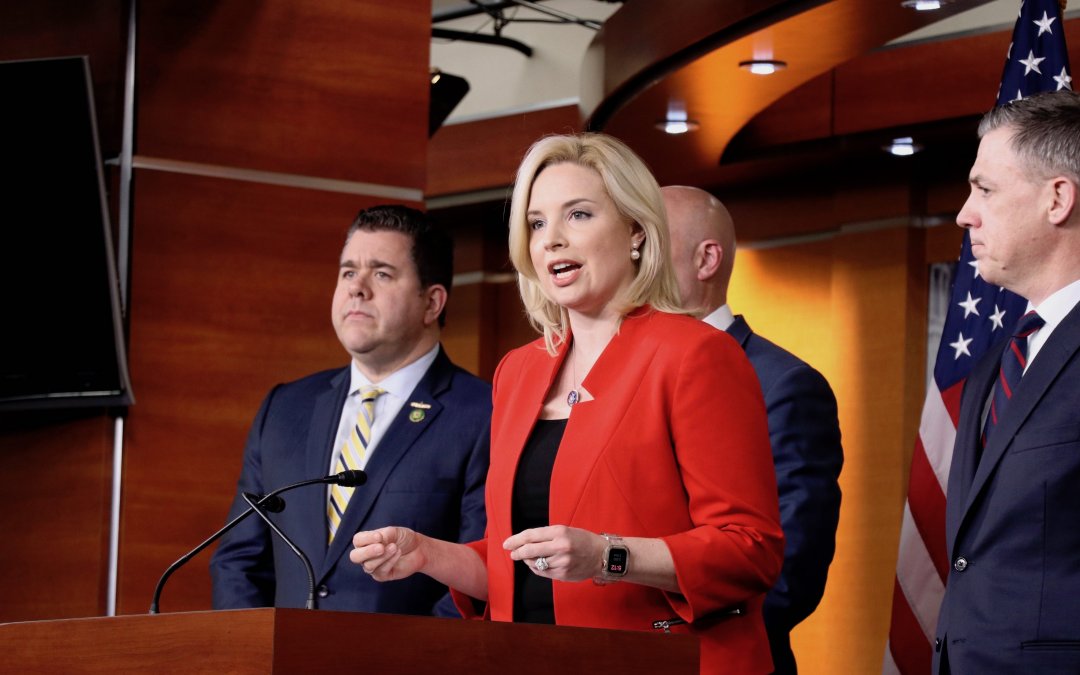WASHINGTON — House Republicans are facing pushback from their own members over legislation to reduce migration at the U.S.-Mexico border, thwarting plans to bring a border security vote to the floor in the first weeks of the new Congress.
The border bill, introduced by Rep. Chip Roy (R-Texas) and co-sponsored by 58 Republicans, would allow the secretary of homeland security to block any foreign citizen from crossing the border if it “is necessary in order to achieve operational control.” An October Gallup poll before the midterms showed that immigration was the second most-important issue to Republican voters, behind only the economy.
House Majority Leader Steve Scalise (R-La.) said last month that he would propose the bill as part of a list of legislation for the House to vote on during the first two weeks of the new Congress. The bill is unlikely to pass in a Democrat-controlled Senate.
“The fact of the matter is there is a war at our southern border and right now we are losing it,” said Jim Banks (R-Ind.), who announced last week his candidacy for an Indiana Senate seat that will open up after Sen. Mike Braun said he will run for governor.
Banks and Rep. Ashley Hinson (R-Iowa) hosted a news conference on Tuesday with four other far-right Republicans, where they criticized President Joe Biden’s administration for being too lenient on immigration. They also peddled unfounded claims about terrorists and sex offenders crossing the border.
But not all Republicans were happy with the bill. Rep. Tony Gonzales (R-Texas), who is from a border district, is among the moderates opposed to the bill.
“If you want to lose the majority, this is how you do it,” Gonzales told The Washington Post.
Democrats in both the House and Senate are urging Republicans to work with them on bipartisan immigration policy.
“Republicans, now that they’re in the majority, have an opportunity to actually put a plan forward that they’ve been talking about for years that unfortunately has never been put forward,” Rep. Joaquin Castro (D-Texas) said.
Hinson said during her news conference that “conversation around immigration reform cannot happen until we have a secure border.” When asked about the status of Roy’s bill, which she co-sponsored, Hinson said she is “not sure where the negotiations stand.”
In a letter to lawmakers last week, Mark J. Seitz, the chairman of the United States Conference of Catholic Bishops’ migration committee, condemned the bill.
“The bill is antithetical to our nation’s moral principles, contrary to U.S. refugee law, and would cause the United States to violate its international obligations,” he wrote.
Scalise also vowed to vote early on a bill that would notify federal authorities if an undocumented immigrant purchases a firearm.
Law enforcement encountered over 250,000 people attempting to cross the border in December, according to U.S. Customs and Border Patrol data. But the Department of Homeland Security announced Wednesday that it has seen a 97% decrease in encounters with Cubans, Haitians, Nicaraguans and Venezuelans since the Biden administration announced restrictive immigration measures early this month.
Meanwhile, Republicans are targeting the White House for its handling of the border. Twenty states with GOP attorneys general sued the Biden administration on Tuesday over its new policy, which restricts border crossing but allows 30,000 migrants from Cuba, Haiti, Nicaragua and Venezuela to enter the country each month.
Republicans are still planning a continued series of events to hammer the Biden administration over immigration. Rep. Pat Fallon (R-Texas) introduced articles of impeachment against Homeland Security Secretary Alejandro Mayorkas this month and the House Judiciary Committee scheduled its first hearing of the new Congress for next Wednesday titled “The Biden Border Crisis: Part 1.”


